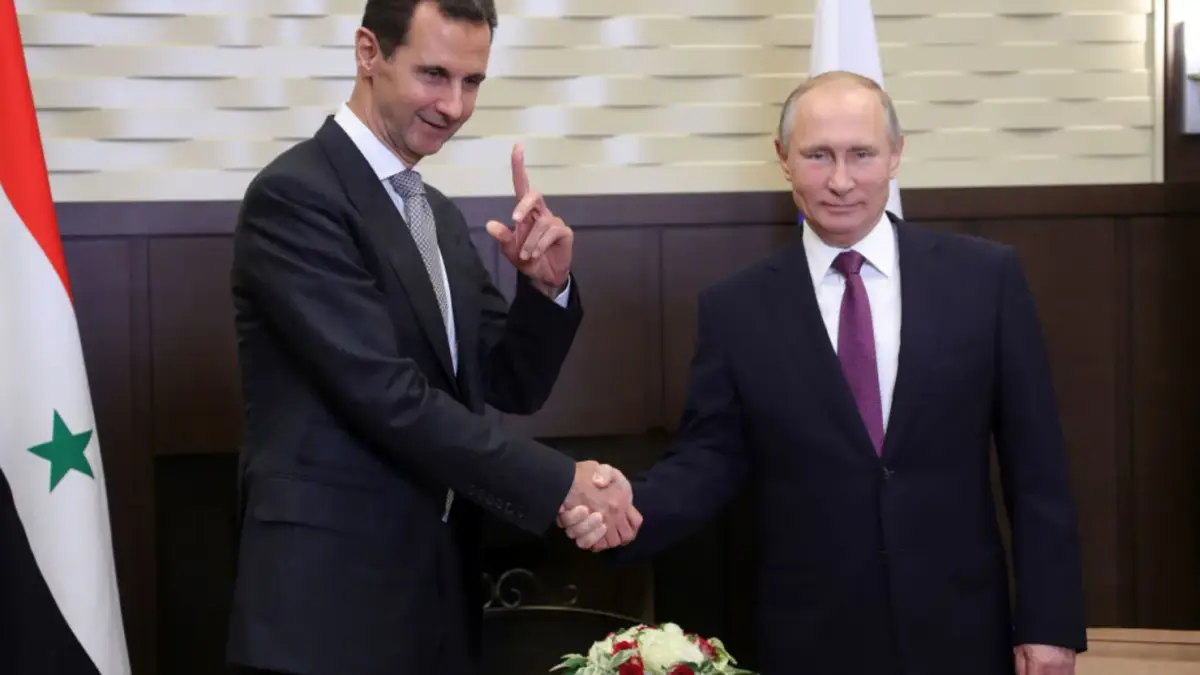Syrian President Bashar Assad has reportedly fled to Moscow after rebel forces seized Damascus on Sunday, marking the end of the Assad family’s five-decade rule. Russian state media outlets, Tass and RIA, cited unnamed Kremlin sources confirming Assad and his family were granted asylum in Russia, long regarded as Assad’s key ally.
The insurgents’ rapid advance into Damascus prompted scenes of jubilation and upheaval, as residents flooded the streets with celebratory gunfire, chanting anti-Assad slogans and waving the revolutionary flag. Meanwhile, others looted the presidential palace and government offices.
A New Era, but Challenges Remain
The rebels, led by Abu Mohammed al-Golani, formerly associated with al-Qaida, now face the monumental task of unifying a nation fractured by 14 years of civil war. Golani, who presented himself under his birth name Ahmad al-Sharaa, declared Assad’s downfall a victory for the Islamic nation and emphasized a vision of pluralism and tolerance.
However, divisions persist. The country remains splintered, with U.S.-backed Kurdish forces in the north, Turkey-supported factions, and remnants of the Islamic State group still active. The task of reconciling Syria’s diverse religious and ethnic communities, including Sunnis, Alawites, Druze, and Christians, looms large.
Rebel leaders have pledged to avoid the authoritarianism of the Assad era. “Syria is for everyone,” said rebel commander Anas Salkhadi, addressing fears of sectarian retribution.
Global Reactions and Geopolitical Ripples
Russia has called for an emergency U.N. Security Council session to address Syria’s future, while regional powers convened in Qatar to discuss a transitional roadmap. Iran, a staunch ally of Assad, urged Syrians to decide their fate without external interference, even as its diplomatic posts in Syria were ransacked.
Israel, meanwhile, reinforced its control of the Golan Heights, citing security concerns after Syrian forces vacated their positions. The Arab League condemned Israel’s actions as opportunistic amid Syria’s upheaval.
The international community, led by the United Nations, has called for urgent negotiations to ensure a peaceful political transition. Qatar emphasized the importance of stability, calling for inclusive talks involving all key players, including the rebel faction Hayat Tahrir al-Sham (HTS).
Scenes of Transformation in Damascus
Damascus has transformed overnight. Joyful crowds filled public squares, while armed rebels secured key government institutions. Videos circulating online showed rebels freeing prisoners from the infamous Saydnaya prison, with emotional scenes of reunions and relief.
Despite the celebrations, some residents voiced concerns about potential chaos and retribution. “This happiness will not be complete until I see my son,” said Bassam Masr, who has searched for his detained child for 13 years.
Elsewhere, residents expressed disbelief at the sudden regime change. “It’s like a dream,” said opposition fighter Abu Laith.
The fall of the Assad regime marks a seismic shift in Middle Eastern geopolitics and opens a new chapter for Syria. While celebrations reflect hope for a brighter future, the road ahead is fraught with challenges—domestic reconciliation, geopolitical maneuvering, and rebuilding a nation shattered by war.
The coming days will be critical as international stakeholders and Syrian factions navigate this historic transition.






